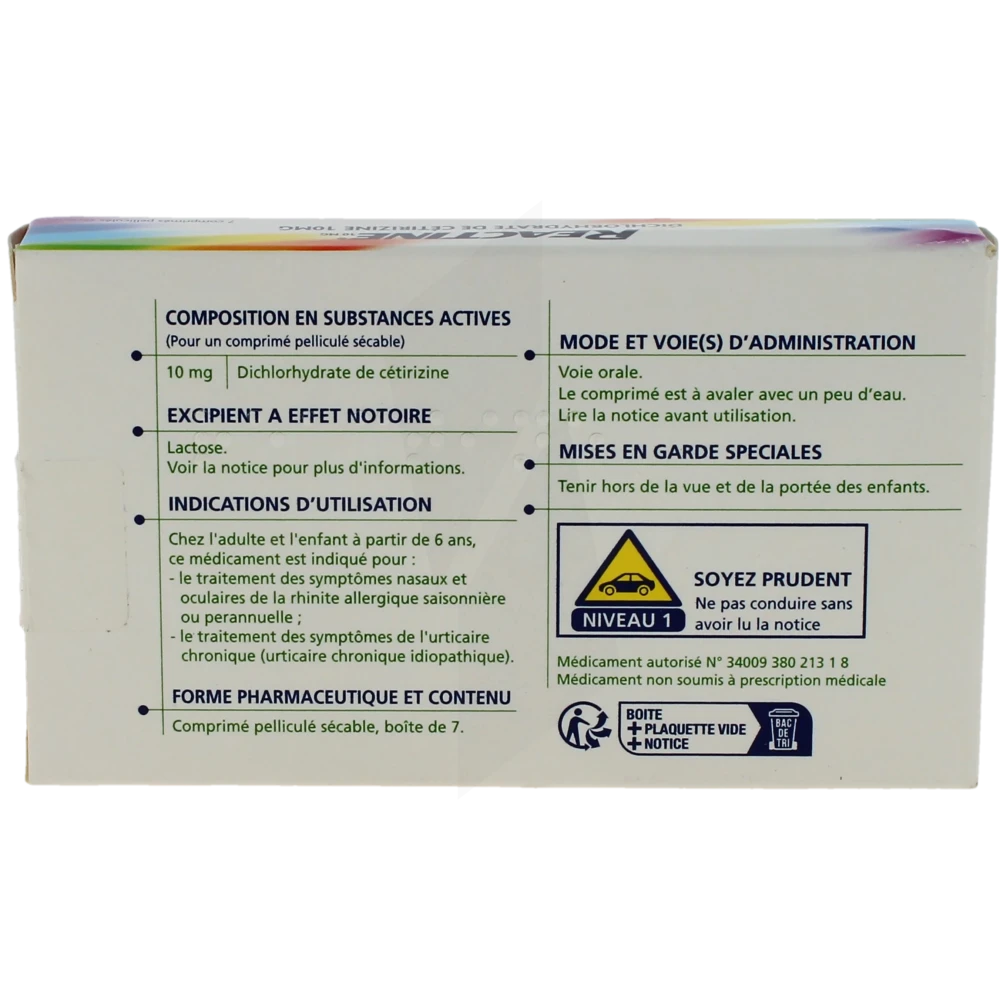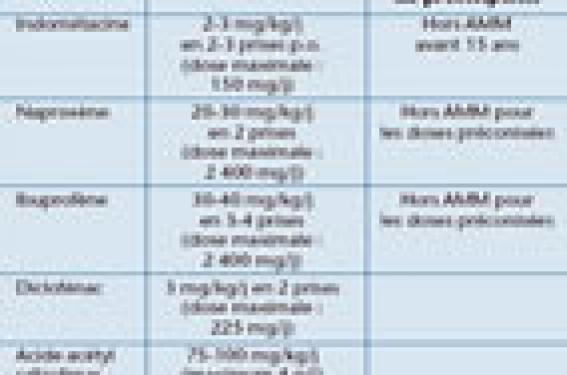Cetirizine is an antihistamine widely used to treat symptoms of allergies such as allergic rhinitis and hives. Often prescribed to relieve itching, sneezing and runny noses, it has gained the trust of healthcare professionals and patients. However, like any medication, side effects and contraindications are linked to its use.
It is essential for patients to understand not only the benefits of cetirizine, but also the associated risks. Among the most common side effects, we find drowsiness, fatigue and headaches, which can affect the daily lives of people who consume it. Additionally, serious allergic reactions, although rare, can occur and should be taken very seriously. Good knowledge of dosage and warning symptoms is therefore crucial for safe use.
This article will explore in depth the medical prescriptions, side effects and contraindications associated with cetirizine, in order to enlighten patients and enable them to make informed choices regarding their health.

Medical prescription, side effects and contraindications of cetirizine: what you need to know
There cetirizine is an antihistamine commonly used to treat symptoms of allergies, such as hay fever, hives and other allergic manifestations. Its prescription is governed by specific medical recommendations, which take into account the patient’s general state of health and medical history. From this perspective, it is essential to understand the side effects potential and contraindications associated with the use of cetirizine. This article aims to shed light on these aspects in order to offer a complete vision of this medication.
Medical prescription for cetirizine
Cetirizine is often prescribed to relieve moderate to severe allergy symptoms. This medication is usually given in tablet form, 10 mg, and can be taken once a day. There dosage should be adapted according to individual needs and doctor’s recommendations. In certain situations, particularly in children or the elderly, the dosage can be adjusted to prevent adverse effects linked to too much sensitivity.
Before proceeding with the prescription, the doctor evaluates the patient’s medical history. This includes checking for prevalent health conditions such as liver or kidney disease. These conditions can influence both the dosage and the frequency of cetirizine administration. In the event of a history of severe allergies, the doctor can discuss the potential risks and therapeutic alternatives.
Common and rare side effects of cetirizine
Like any medication, cetirizine is accompanied by the possibility ofside effects. Among these, some are more common: drowsiness, fatigue, nausea, and headaches. These effects affect between 1 and 10% of users. Drowsiness may be of particular concern as it may affect the ability to drive or operate machinery.
However, less common side effects have also been reported, such as swelling of the face or throat, a severe allergic reaction, or increased heart rate. Other rare symptoms include confusion, digestive upset like diarrhea, and general malaise. In case of overdose, symptoms may worsen, and it is recommended to stop treatment immediately.
Patients should be aware of these potential side effects and contact their doctor if any adverse reactions occur. Regular monitoring helps determine whether cetirizine remains a viable option for allergy treatment.
Contraindications to the use of cetirizine
Before using cetirizine, some contraindications must be considered. For example, it is generally not recommended to administer this medication to people with hypersensitivity to cetirizine or other components present in the formulation, such as hydroxyzine. Additionally, patients with hepatic disorders should be cautious because cetirizine is metabolized by the liver.
Pregnant or breastfeeding women should also speak with their doctor before starting treatment. Although studies have not demonstrated significant adverse effects on the fetus, a careful assessment of risks and benefits is essential. Additionally, it is crucial to consider possible interactions with other medications, including other antihistamines or sedatives, which may intensify side effects.
If allergy symptoms occur, the patient should immediately consult a doctor to assess whether cetirizine is appropriate or whether another form of treatment should be considered.
In summary, cetirizine is an effective medication when managing allergies; however, its prescription and use must be carefully managed to minimize the risk of side effects and complications. To get more information, you can check out resources such as Vidal, Pediatric On Call, Vidal, Santors And ANSM. Each patient is unique, and a personalized approach ensures treatment is effective while mitigating potential risks.

Frequently Asked Questions About Cetirizine
What are common side effects of cetirizine?
Common side effects of cetirizine may include drowsiness, fatigue, nausea, And headache.
Are there any serious side effects associated with cetirizine?
Yes, serious allergic reactions, such asangioedema (swelling of the face and throat), may occur. It is advisable to stop taking the medication immediately and consult a doctor.
How should cetirizine be taken?
The usual dosage is one recommended daily dose, but it is important to follow the doctor’s recommendations.
Which patients should avoid cetirizine?
Cetirizine is contraindicated in patients with allergic reactions taking medication or suffering from certain liver problems. Medical advice is recommended.
What are the signs of a cetirizine overdose?
An overdose may lead to symptoms such as drowsiness, dizziness, or even headache. In the event of an overdose, consult a healthcare professional.
Can cetirizine cause drug interactions?
Yes, it is essential to inform the doctor of all medications taken, as cetirizine may interact with other treatments.












